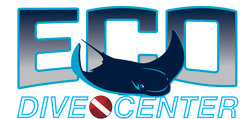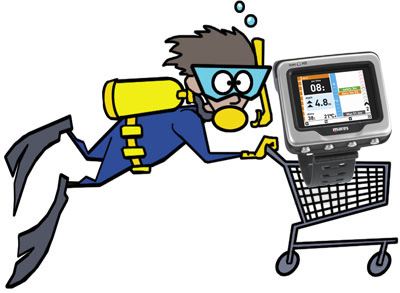Product Description
IRONMASK– diving full face mask w/int. 2nd stage, surface air valve and hose
The Neptune Space IRON MASK is OCEAN REEF's top of the line mask specifically designed for use in contaminated water. Each external part in direct contact with high amounts of chemicals and aggressive hydrocarbons has been made with special raw materials. In particular, the IRON Mask has the following unique parts:
- Inhalation diaphragm, Exhalation valve, Purge button and Face seal composed of FVMQ rubber
- Stainless steel AISI 316 frame, buckles and adjustment knob
- Anodized Anticorodal®, Front Cover.
The sturdy feeling of the mask's design allows divers to make sensitive micro adjustments to the airflow, even when using gloves. Surface treatments protect the mask from salt water damage and tech polymer protection treatments allow the Neptune Space IRON MASK to be used in extreme conditions. The Glacier strap is composed of HNBR rubber compound for extreme low temperatures.
Total weight 1090g (2.40lb) with a positive buoyancy of 172g (0.40lb)Technical characteristics
Click here to view Chemical Resistance Chart
SPECIALFEATURES
- Lifetime Warranty
- Free Assistance Once per year at Ocean Reef Facilities (Shipping not included-Valid for 4 years from purchase date)
- FREE UPDATES(for 2 years from purchase date)
- 10% Discount on all accessories including the DDR, Visor lights, SDVL and Communication units. (Not valid for the purchase of another full face mask-Quantity of 1 purchase per accessory for 1 year from purchase date of the mask)
THE NEPTUNE SYSTEM
The Neptune System is not just a full face mask. It is an aggregation of diving components: a mask with a large field of vision, a durable LEDs torch, an superior and comfortable regulator, an easy to read, heads up display, and a compact and powerful underwater communication device.
OCEAN REEF’s revolutionary full face masks are the product of intense research and valuable experience acquired in the development and production of military protection equipment. The surface-based versions of our full face mask have received international approval for use in the civil sector and have been adopted by specialized departments in numerous military and defense organizations for use in Nuclear, Biological, and Chemical (NBC) operations. From the Gulf Wars/Homeland security program to Antarctic expeditions, from military use to space exploration, from commercial to recreational activities, the Full Face Mask Project, which started in 1985, and involved over 50 different types of masks, has experienced a diverse range of conditions and applications. With the development of the Neptune Full Face masks for
underwater use, OCEAN REEF is now recognized worldwide as ������������������_������������������������������������������������THE FULL FACE MASK COMPANY, wherever you dive.
Adaptability- Face Seal - Sizes

The patented bellows-type skirt with a “spring profile” has a large sealing surface (30-45 mm, double that of a conventional mask). The spring effect is achieved by a combination of the double “S” section and the inner support ribs, resulting in a comfortable fit and ample support. This allows the mask to “float” comfortably on the face. The face seal and strap concepts are OCEAN REEF patents.
The majority of the models may be supplied with two sizes: Small/Medium and Medium/Large. In order to determine whether a diver should wear a S/M or M/L mask, OCEAN REEF has designed a Mask Measuring Kit (code 33075).
The sizing and measuring system were designed in accordance with the official measuring procedure used in the Los Alamos Scientific Laboratory Charts at the SBCCOM Mask Fit Facility-Aberdeen Proving Ground (Maryland, USA). Before purchasing a mask, use the caliper to take two simple face measurements. Using the Full Face Mask Size Recommendation Chart, it is possible to evaluate the size category into which the measurements fall.
There are three different size categories on the chart: Small/Medium, Both, and Medium/Large. If the measurements fall within the both category, then the customer should technically be able to wear either size (MEDIUM/LARGE or SMALL/MEDIUM), and in that case they should try on a mask to select the best fit. Please note that the chart boundaries fade. The fading areas represent less common face measurements. It is very likely that a mask will still fit comfortably even if measurements are located in these fading areas. 


Visual Field
The Neptune Space visor is made of transparent polycarbonate. It is designed to be wider and sit closer to the face than previous full face masks. This design maximizes the visual field, particularly the peripheral area. The visible light transfer of the visor is 92%.
Required field of vision (effective) >40% of the natural field of vision – Space masks 71.80%.
Required field of vision (binocular) >50% of binocular natural field of vision – Space masks 80.68%
Italcert certification PPE-05 Rif 1332/05
The insert photos show the visual field of the Neptune Space compared with two competitor’s full face masks.
Durability and scratching resistance
The visor of the Neptune Space can resist the impact of a 6.35 mm steel ball traveling at speeds of 540 kph (335 mph). The visor is coated on both sides with a siloxane resin to increase the scratching and chemical resistance.
Tested by STANAG 4296 = resistance to the impact of a 325mg metal fragment with a speed of 240 m/s and Impact resistance test: 39.3 mm/254 g sphere from 1300 mm, no cracking or added protection during transport, the Neptune Space comes with a removable protective shield (to be removed before diving).
The head harness and FRB II

The head harness is directly attached to the face shield, allowing pressure to be distributed equally along the mask skirt. The six straps of the head harness hold the mask in a firm position due to their low elasticity. The tip of each strap (rubber) is wider, making them easier to
grasp while wearing neoprene gloves. The FRB II (Raptor and Space Fast Rotating Buckle) allows the mask to be donned and doffed quickly. Predator and IRON MASK use an AISI 316 stainless steel with surface electric treatment and AISI 316 stainless steel rollers.
| Air circulation |  Surface air valve Surface air valveThe Neptune Space is equipped with a surface air valve that allows the diver to breathe ambient air while at the surface. The surface air valve is easily adjustable with large air vents. Draining and pressure equalization Draining and pressure equalization Water that may seep into the mask is easily eliminated by exhaling or pushing the “purge” button on the 2nd stage. Mask squeeze, a common problem for conventional masks, will not occur with the Neptune Space because the pressure inside the mask is equal to the pressure outside the mask. The 3-D equalization system The patented OCEAN REEF 3-D equalization system is designed to allow easy equalization during a dive. The system consists of a movable plate and two eccentric blocks (these blocks move close to the nostrils when the upper part of the visor is pressed). When equipped with Visor Lights (see after), use the regulator to push the mask toward your face, creating a nasal seal. The blocks plug the diver’s nose allowing equalization.   | Before donning the mask, the blocks may be moved up or down depending on the length of the diver’s nose. They may also be adjusted to fit wide or narrow noses. The system also includes three pairs of extenders (3, 6, 10mm long) which allow the distance between the blocks and the nose to be modified to accommodate the diver’s face. The 3-D equalization system makes diving more comfortable and inhibits any undesired pressure during a dive. Regulator characteristics The Neptune masks are  equipped with a pneumatically balanced second stage providing a consistent ease of breath at any tank pressure. An inhalation adjustment feature allows the diver to control air delivery under a variety of diving conditions. The system works with 2 coaxial springs. The Dive/Pre-dive (Venturi) lever reduces free flow on the surface and provides maximum air flow while at depth. The Neptune Space mask complies with CE Certification in accordance with 89/689/EEC directives under the UNI EN250 standard rules for underwater activities, including equipped with a pneumatically balanced second stage providing a consistent ease of breath at any tank pressure. An inhalation adjustment feature allows the diver to control air delivery under a variety of diving conditions. The system works with 2 coaxial springs. The Dive/Pre-dive (Venturi) lever reduces free flow on the surface and provides maximum air flow while at depth. The Neptune Space mask complies with CE Certification in accordance with 89/689/EEC directives under the UNI EN250 standard rules for underwater activities, includinglow temperatures ( CE low temperature approval by Germanisher Lloyd. |

































